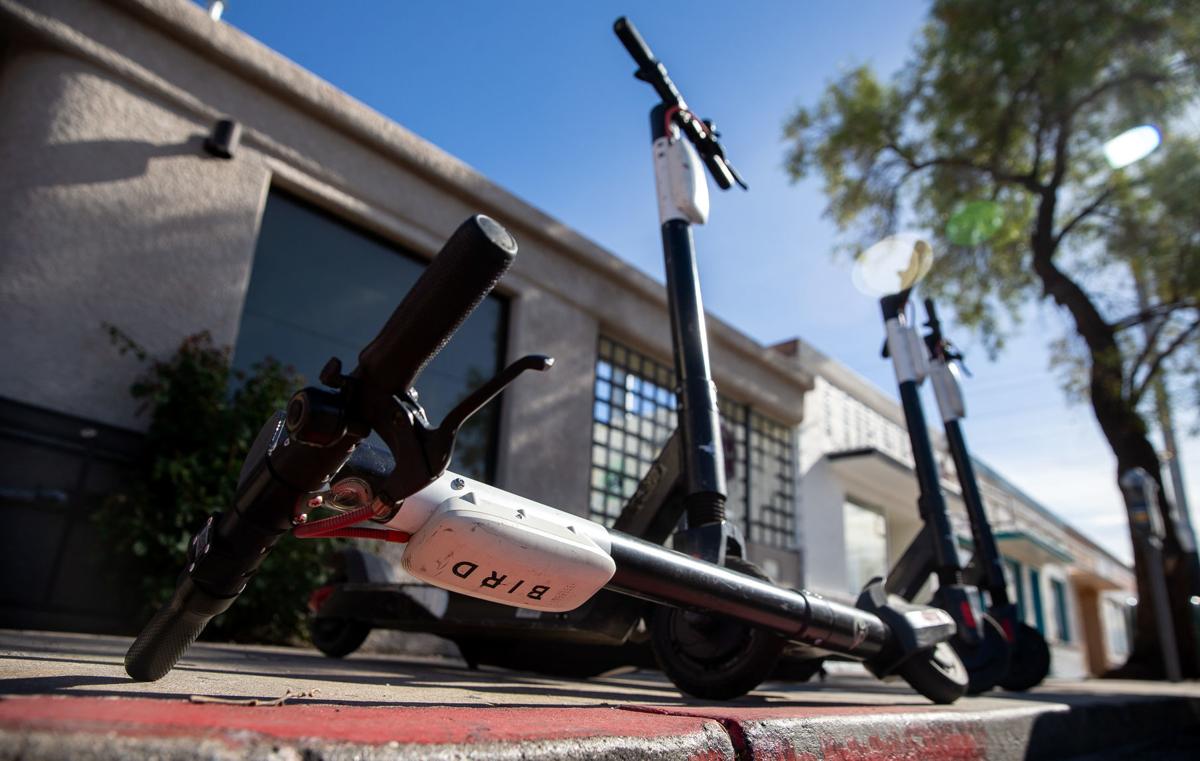E-scooters will remain on Tucson streets at least through September after the City Council opted to extend the pilot program for another six months.
Citing a desire to collect more data regarding the use of the scooters, the Tucson City Council approved, on a 6-1 vote, a recommendation from the city manager’s office to extend the program, which was launched on Sept. 12 and was scheduled to end on March 12.
The city manager’s office also recommended more scooter deployments in opportunity zones in an effort to increase utilization for low-income riders and to use the projected $129,304 generated through the year-long pilot program for infrastructure improvements, including buffered and protected bike and mobility lanes.
“I think the goal of this program was to have the access for micromobility for people in our community,” Mayor Regina Romero said during Tuesday’s council study session. “I’m excited about this program. I want to continue studying it.”
As part of the review of the pilot program, the city’s Department of Transportation and Mobility compiled a review of scooter use in the first five months after more than 700 Bird and Razor scooters hit Tucson streets in September.
The report found that about 37,000 individuals took more than 173,000 rides in those five months.
While ridership peaked at roughly 55,000 rides in the second month of the program, that number dropped by about half to roughly 20,000 a month in December and January, months when temperatures dropped and many University of Arizona students were out of town on winter break.
Trips averaged less than one mile and about nine minutes, and the vast majority — nearly 80% — of rides took place in Ward 6, the area that includes parts of North Fourth Avenue and East University Boulevard, near nightlife adjacent to the university.
The rented scooters have received pushback in the past from several groups in that area, including the North Fourth Avenue Merchants Association and the Iron Horse Neighborhood and West University Neighborhood associations, who have reported unsafe and improper use of the scooters in their areas, including illegally parked scooters.
Councilman Steve Kozachik, who represents the area, voted against the motion, expressing skepticism that the money would be enough to fund large-scale infrastructure changes, and that the companies would be willing to expand the scooters into low-income areas.
“I am continuing to be 100% against this,” he said.





